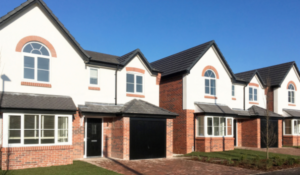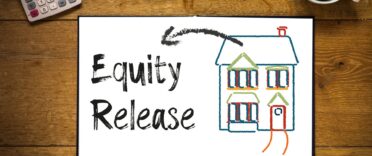
What is a new build property?
A new-build property is usually any home that has been built within the last 2 years and no one has lived in before.
Different lenders can have slightly different definitions of what constitutes a new build. Nationwide, for example, allows for a new build to have been previously occupied or rented, as long as it is still in the ownership of the original developer and has been built within the last 2 years. The standard definition however is a recently-built, brand new property which is free from the maintenance costs or planning permission obstacles that can often plague older homes.
New-build properties nevertheless come with their own drawbacks and it is important to consider both the advantages and disadvantages of buying a new build before you make the leap.
What are the pros of buying a new-build property?
Government Help-to-Buy schemes
Many new-build properties have the advantage of being eligible for government incentives, such as the Help to Buy Equity Loan or the Help to Buy Shared Ownership scheme. These schemes are aimed at first-time buyers attempting to get onto the property ladder by minimising deposit or mortgage costs, and can help make the upfront costs of purchasing a home more manageable. If you are a first-time buyer, it would be worth checking to see if the property you have your eye on is eligible for a Help to Buy scheme.
Incentives from developers
Sometimes developers will offer incentives on new-build homes, ranging from armed forces discounts to covering your estate agent fees if you are moving from another property. For example, if you can provide a 10% deposit, Barratt Homes will boost you by an additional 5% of the purchase price and bring your mortgage down to just 85%. St. Modwen Homes, on the other hand, offer contributions to legal or moving fees for key workers.
Warranty
All new-build properties come with a 10-year structural warranty from the National House Building Council, meaning you will not have to pay out if anything goes wrong. It is usually a condition on mortgage applications that a structural warranty is in place. Major structural damage and weatherproofing are usually covered by this scheme, giving you the peace of mind that any unforeseen integral damage to your property will not have to be corrected out of your own pocket.
No buyer chain
Since usually no one has lived in a new-build property before, there is no chain of buyers above you, which means that you can move in as soon as you have finalised the purchase. Older homes often come with the caveat of having to wait for the previous occupants to complete their own property search and move out. A new build is ready and waiting for you to move in to as soon as your contract is sorted which removes the stress of juggling someone else's timetable on top of your own, and leaves you free to move on your own terms.
Low bills
New-build homes have to meet minimum energy efficiency standards and so tend to be designed with modern facilities in mind, such as double glazing and insulation, which can help you save money on your energy bills - with the added bonus of being more environmentally friendly. With the cost of energy rising exponentially, a new-build property could save you more money on utilities in the long term compared to an older property of a similar value.
What are the cons of buying a new-build property?
Premium price
New-build properties are usually sold at a premium because they are brand new and in perfect condition, but these perks are lost the day that you move in and leave you vulnerable to depreciation. This means that a one-year-old property will likely fall in value compared to when it was purchased simply because it is no longer unused, and so you run the risk of slipping into negative equity with a property worth less than what you bought it for.
Harder to get a mortgage
Due to the premium price tags on new-build properties, lenders are often stricter about the maximum loan-to-value (LTV) they will offer you, on the assumption that the home could depreciate in value at some point, leaving the homeowner in negative equity. Although the government has launched its mortgage guarantee scheme with the aim of incentivising lenders to offer more 95% LTV mortgages, of the five top lenders on the scheme - Lloyds, Barclays, Santander, HSBC and Natwest - not a single one is currently offering 95% mortgages on new-build properties.
What this means, in reality, is that it may be difficult to find a lender who will accept a minimal 5% deposit, and with new properties typically hitting the market at a premium price point, you may find new builds require you to provide more funds upfront than an older home.
Leasehold
Many new-build properties are sold as leasehold rather than freehold, meaning you do not own the plot of land that your home is on and must pay ground rent to the freeholder. Leasehold sales were banned in Scotland in 2004, and the government is reportedly considering prohibiting them across the UK, but in the meantime it is crucial to check the terms of your lease before making an offer on a property so that you know exactly what you are buying.
Potential completion delays
New-build properties are not always ready on time and it is not unusual for your scheduled move-in date to be postponed to allow for construction to complete. Though not always for an extended period of time, you may end up paying rent or keeping your belongings in storage for longer than you had planned for if you are living somewhere temporarily while waiting for your home to be completed. These costs can stack up surprisingly quickly, so if you are set on a new build, it would be wise to make sure you have enough excess funds to see you through any unexpected delays.
Is a new-build property right for me?
For some, a new-build property is just right - brand new, low maintenance, modern facilities - but these advantages come with their own set of issues, and you should make sure you are prepared for the delays and teething issues which are common in brand new homes.
It is also important to remember that new properties tend to depreciate for the first few years once they are used, so if you are only planning on living there for a short period before you sell up, a new build may not be the right option for you. New properties are generally best suited to those intending to stay put for a while.
For more information about buying a home, check out our article "How much does it cost to move house?" and our advice on how to find the cheapest estate agent in your area.





